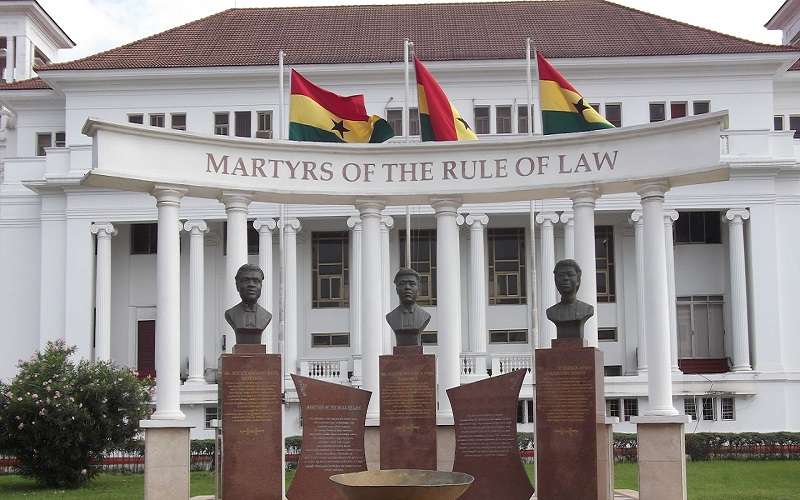The Supreme Court has passed its verdict concerning the Dafeamekpor vs. The Speaker of Parliament suit which sought an injunction against the Speaker to cease the vetting and approval processes of some Minister nominees of the President, describing the suit filed by the Member of Parliament, Hon. Dafeamekpor, as frivolous.
The major contention with the trial, however, is not the verdict pronounced by the Supreme Court but how speedily the case was attended to although there are other cases of equal importance, such as the one concerning the anti-LGBTQ+ bill, before the court which have not been attended to.
Unequivocally stating, seeking an expeditious trial regarding this case is not in itself a wrong approach as the case needed to be attended to as early as possible to ensure that Parliament returns to normal business which guarantees the effective operation of the state.
What, however, is suspicious about the application for an expeditious trial is the fact that it was done on the blind side of the plaintiff in the suit and his lawyers as the Attorney General, Esq. Godfred Dame, who requested a speedy trial, failed to notify the defendant and his legal team about his decision.
“To avoid ex-parte communication, what you do is that you copy the lawyer on the other side that for so and so reason, I think this matter that we handling, I want an expedited hearing. You copy the other person so that the other person is in the know… that is the practice. In this case, the lawyer was only served with a hearing notice from the court”.
Esq. Edudzi Tamekloh
Though not a direct party to the suit, the Attorney General has the constitutional right to make such an application especially where the suit filed by the Member of Parliament affects the operations of Parliament and therefore the business of government.
Regardless of the facts established, the Attorney General’s application for an expedited trial reeks and foul play as he failed to notify the other party in the suit about his application which would have otherwise ensured that the plaintiff is adequately prepared to be present at the trail.
The Attorney General’s request for a speedy trial regarding this case without requesting the same for the anti-LGBTQ bill suit, which is perhaps the root cause of the Speaker of Parliament’s decision to suspend Parliament indefinitely, questions the intention.
Some argue that as a public office holder who is expected to put the needs of Ghanaians before partisan goals, the Attorney General has failed the public by his inability to attend to the suit concerning the anti-LGBTQ+ bill which is of utmost priority to the public, given the support the bill garnered from Ghanaians.
Autonomy Of Judiciary
The manner in which the Supreme Court granted a speedy hearing just by the request of the Attorney General, even though the case had no original hearing date and without any input from the plaintiff questions the autonomy of the judicial arm of government.
“The issue of abridgment of time only comes in if you have an original date and for some reason you want the matter heard earlier. You must then file an application on notice to all the parties involved justifying why you cannot wait. In this particular case, there was no original date given”.
Bobby Banson
According to public opinions, the actions of both the Judiciary and the Attorney General support the notion that public officers of higher rankings are given preference in the conduct of judicial duties, especially after the Attorney General initially revealed days before that he got feedback on a search for the lawsuit in question within thirty minutes; a quest which would have taken an ordinary citizen at least a week to attain.
Experts suggest that what has been the practice in case of an application or request for expedited trial is that upon receiving the application, the judge engages both parties; plaintiff and defendant, to deliberate on the need for a speedy trial. Upon being convinced, the judge then grants the applicant a speedy trial indicating the day/date of the trial to both parties.
They argue that while there are exceptions to every rule, the Supreme Court’s decision to conduct a trial just within twenty-four hours of serving both parties a hearing notice concerning the trial gives both parties and their legal teams, insufficient time to put together their argument for their defense in court.
Given the short notice the court gave to both parties in the suit, Some would think the court would have been considerate to postpone the hearing in the absence of the plaintiff and his legal counsel, taking into account the many hearings that have been adjourned in the past due to the absence of a party in a suit.
Conclusively, public opinion suggests the Supreme Court was in a haste to make the case a foolish one, which it allegedly did by pronouncing it frivolous and an abuse of court. The conduct of the court, in this case, further damages the already diminished trust Ghanaians have in the country’s legal system based on public sentiments.
READ ALSO: Kelvynboy Questions Okraku Mantey’s Legacy






















